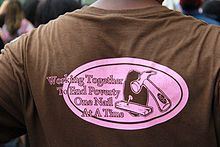The role of education and skill-building as precursors to economic development

Universal public education has some role in preparing youth for basic academic skills and perhaps many trade skills, as well. Apprenticeships clearly build needed trade skills. If modest amounts of cash and land can be combined with a modicum of agricultural skills in a temperate climate, subsistence can give way toward modest societal wealth. As has been mentioned, education for women will allow for reduced family size—an important poverty reduction event in its own right. While all components mentioned above are necessary, the portion of education pertaining to the variety of skills needed to build and maintain the infrastructure of a developing (moving out of poverty) society: building trades; plumbing; electrician; well-drilling; farm and transport mechanical skills (and others) are clearly needed in large numbers of individuals, if the society is to move out of poverty or subsistence. Yet, many well-developed western economies are moving strongly away from the essential apprenticeships and skill training which affords a clear vocational path out of modern urban poverty.
Microloansedit
One of the most popular of the new technical tools for economic development and poverty reduction are microloans made famous in 1976 by the Grameen Bank in Bangladesh. The idea is to loan small amounts of money to farmers or villages so these people can obtain the things they need to increase their economic rewards. A small pump costing only $50 could make a very big difference in a village without the means of irrigation. A specific example is the Thai government's People's Bank which is making loans of $100 to $300 to help farmers buy equipment or seeds, help street vendors acquire an inventory to sell, or help others set up small shops. The International Fund for Agricultural Development (IFAD) Vietnam country programme supports operations in 11 poor provinces. Between 2002 and 2010 around 1,000 saving and credit groups (SCGs) were formed, with over 17,000 members; these SCGs increased their access to microcredit for taking up small-scale farm activities.
Comments
Post a Comment